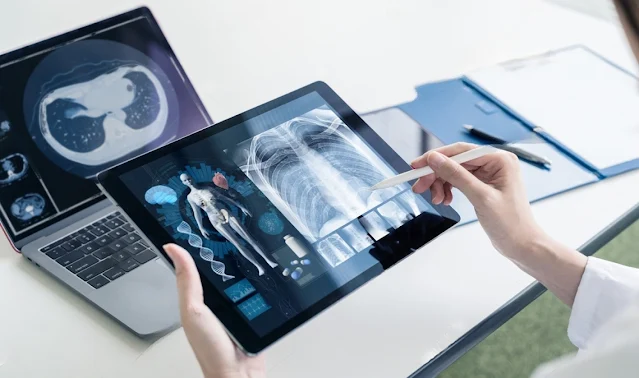AI and IoT are Transforming Healthcare
Healthcare is one of the most important and challenging sectors in the world. It affects the lives and well-being of billions of people, and it faces many issues such as rising costs, aging populations, chronic diseases, and pandemics. However, healthcare is also one of the most innovative and dynamic sectors, thanks to the adoption and advancement of new technologies.
Two of the most trending technologies in 2023 are artificial intelligence (AI) and the Internet of Things (IoT). AI is the ability of machines to perform tasks that normally require human intelligence, such as learning, reasoning, and decision making. IoT is the network of physical objects that are embedded with sensors, software, and connectivity, enabling them to collect and exchange data.
AI and IoT are transforming healthcare in many ways, from diagnosis to treatment to prevention. Here are some of the examples of how these technologies are improving healthcare outcomes and experiences in 2023.
AI for Diagnosis
AI can help doctors and patients diagnose diseases faster and more accurately. For example, AI can analyze medical images such as X-rays, CT scans, and MRI scans to detect abnormalities or signs of cancer. AI can also analyze genomic data to identify genetic mutations or predispositions to certain diseases. AI can also use natural language processing to understand medical records or reports and provide insights or recommendations.
AI can also help patients diagnose themselves at home or remotely, using devices such as smartphones or wearables.Read More For example, AI can use computer vision to analyze skin lesions or eye conditions using the camera of a smartphone. AI can also use speech recognition to analyze voice patterns or cough sounds to detect respiratory diseases. AI can also use sensors or biosensors to measure vital signs such as blood pressure, heart rate, or glucose levels.
IoT for Treatment
IoT can help doctors and patients deliver and monitor treatments more effectively and efficiently. For example, IoT can enable telemedicine or remote care, where doctors can consult with patients or perform procedures using video conferencing or virtual reality. IoT can also enable smart devices or implants that can administer drugs or therapies automatically or on demand. IoT can also enable smart hospitals or clinics that can optimize resources or workflows using data analytics or automation.
IoT can also help patients manage their own treatments at home or on the go, using devices such as smartphones or wearables. For example, IoT can enable smart pills or patches that can track medication intake or adherence. IoT can also enable smart watches or bands that can track activity levels or symptoms. IoT can also enable smart home devices or assistants that can provide reminders or alerts.
AI and IoT for Prevention
AI and IoT can work together to help doctors and patients prevent diseases before they occur or worsen. For example, AI and IoT can enable predictive analytics or risk assessment, where they can use data from various sources such as medical records, genomic data, environmental data, or behavioral data to identify patterns or trends that indicate a higher likelihood of developing a disease or complication. AI and IoT can also enable preventive interventions or recommendations, where they can use data from various sources such as sensors, biosensors, wearables, or smart devices to provide personalized feedback or guidance on how to improve health behaviors or lifestyles.
AI and IoT are not only transforming healthcare in 2023, but they are also creating new opportunities and challenges for healthcare providers, patients, regulators, and society. They offer many benefits such as improved accuracy, efficiency, accessibility, affordability, and personalization of healthcare services. However, they also pose many risks such as privacy breaches, ethical dilemmas, legal liabilities, and social impacts. Therefore, it is important to ensure that these technologies are used responsibly and ethically, with respect for human dignity and rights.
If you are interested in learning more about AI and IoT in healthcare in 2023, you can visit the websites of some of the projects mentioned above or follow them on social media. You can also watch some videos or read some books that explain these technologies in a simple and engaging way. You can also contribute your ideas and opinions through various online platforms or forums .
AI and IoT are the future of healthcare. And we can benefit from them.

.jpg)


.jpg)




